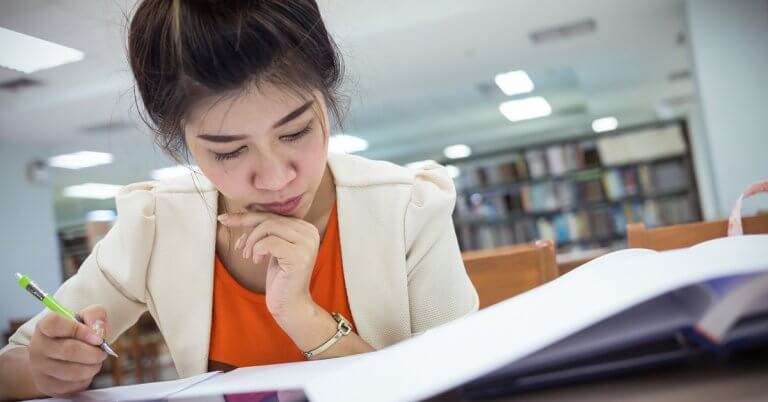
The topic of plagiarism and academic integrity among international students in Australia is currently a hot one, but it’s something that has been going on for a while.
In 2015, ABC’s Four Corners aired a report entitled “Degrees of Deception,” which revealed widespread contract cheating and plagiarism by international students at Australia’s universities.
Fast forward to 2019, and the topic has come up again in the higher education sector after another report by ABC highlighted that certain universities in Australia are going easy on international students by allowing them admission without needing to meet the English requirements.
According to MacroBusiness, half of international students in the country are being accused of plagiarism, and there have been calls for tighter regulations to curb cheating.
So, the focus is back on international students and the supposed lengths they go to in order to get themselves admitted to Australian universities.
But, are they all really to blame?
Many of them are being exploited by “education agents'” A report by the “Joint Parliamentary Inquiry into efficacy of current regulation of Australian migration and education agent” claimed international students were being misled about migration pathways and work rights, as well as being pushed into inappropriate courses that pay higher commissions.
It also noted that “education agents are not currently regulated in Australia” and that “literally anyone can become an education agent”.
Many international students are also unsure what exactly constitutes plagiarism and remain naive over the repercussions of buying essays.
With the latest news that puts international students in the spotlight, it’s not surprising that many are also feeling anxious and stressed over these cheating cases, worried that they will be accused of “accidental plagiarism” – when they didn’t know they were plagiarising in the first place.
So how can they avoid this? Here are some tips.
Be wary of agents
Education agents can help international students greatly, but there are some dodgy ones that are known to break the rules.
A report by the Independent Commission Against Corruption (ICAC) in 2015 stated “competitive forces have pushed the level of English-language proficiency that some universities in NSW demand below what is considered necessary to complete some courses.
“In the search for international students, some universities in NSW are entering markets where document fraud and cheating on English-language proficiency tests are known to exist. They are using large numbers of local intermediaries – sometimes more than 200 agents – to market to and recruit students, resulting in due diligence and control challenges.
“False entry qualifications, cheating on English-language proficiency tests, essay mills selling assignments, plagiarism, cheating in university exams and paying others to sit exams are reportedly common.”
Advertisements like the following are examples of these types of agents who lure students in with the promise of easily getting them in an Australian university.
So how can you be sure if your agent is for real? According to StudiesAustralia, “To ensure that the agent is qualified and approved by your chosen institution, you will need to do some research. You can search for your agent on the Department of Immigration and Citizenship website to ensure they are qualified and check on your preferred education provider’s website to ensure that they are recognised.”
Don’t fall into traps laid out by these agents and remember: if it sounds too good to be true, it probably is.
Paraphrasing vs Plagiarising: Know the difference
Need some professional help for paraphrasing a paragraph in Australia? You need not to look any further. All you need is this online service to paraphrase for you. Check it out and make your content completely free of the plagiarism now! https://t.co/MUzEKvzbDq
— Ara Anjum (@araanjum123411) January 17, 2019
If you’re writing an admission essay or paper for a class, always be sure not to copy and paste word for word.
The internet has made acquiring material from other sources a whole lot easier, and sometimes students are not aware that what they are referencing to is actually plagiarising.
You can use material from other valid sources as long as you paraphrase correctly or use quotation marks, and cite your sources where necessary.
Unsure how to go about this? The Writing Center at Ashford University has some helpful videos which explain how to properly paraphase without outright plagiarising.
And if you’re still in doubt, you can always ask your professor or teaching assistant for advice.
Use a plagiarism checker
How to Pick the Best Plagiarism Checker ✅ https://t.co/vFG7Wu0PnO
— Turnitin (@Turnitin) May 23, 2019
Running your paper or essay through an online tool which helps you check if you’ve accidentally plagiarised is a good idea.
Most professors use these tools anyway, so it’s best to check your paper yourself first to avoid failing or losing marks.
According to The PIE News, “Australian-based online academic support provider, Studiosity, has developed a new writing support tool to help students avoid accidental plagiarism and reduce student anxiety around unintentional cheating.”
Studiosity chief executive Michael Larsen told The PIE News that “the new tool aimed to provide a proactive approach to addressing academic integrity issues, focusing on ‘prevention rather than purely policing of plagiarism’”.
For a list of other free plagiarism checkers, please click here.







